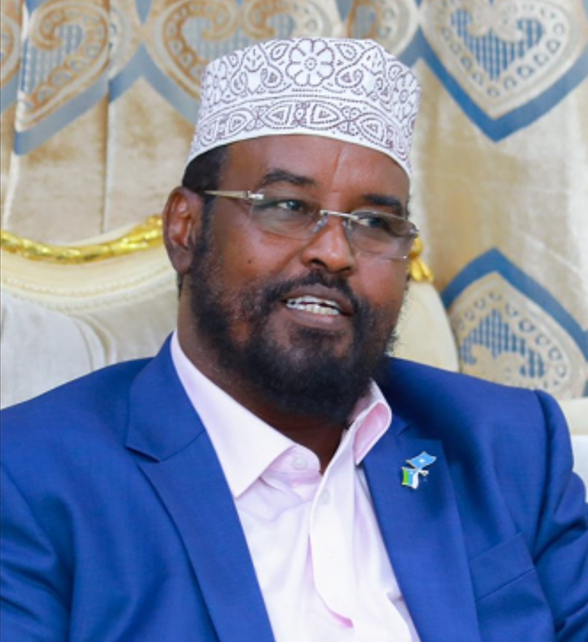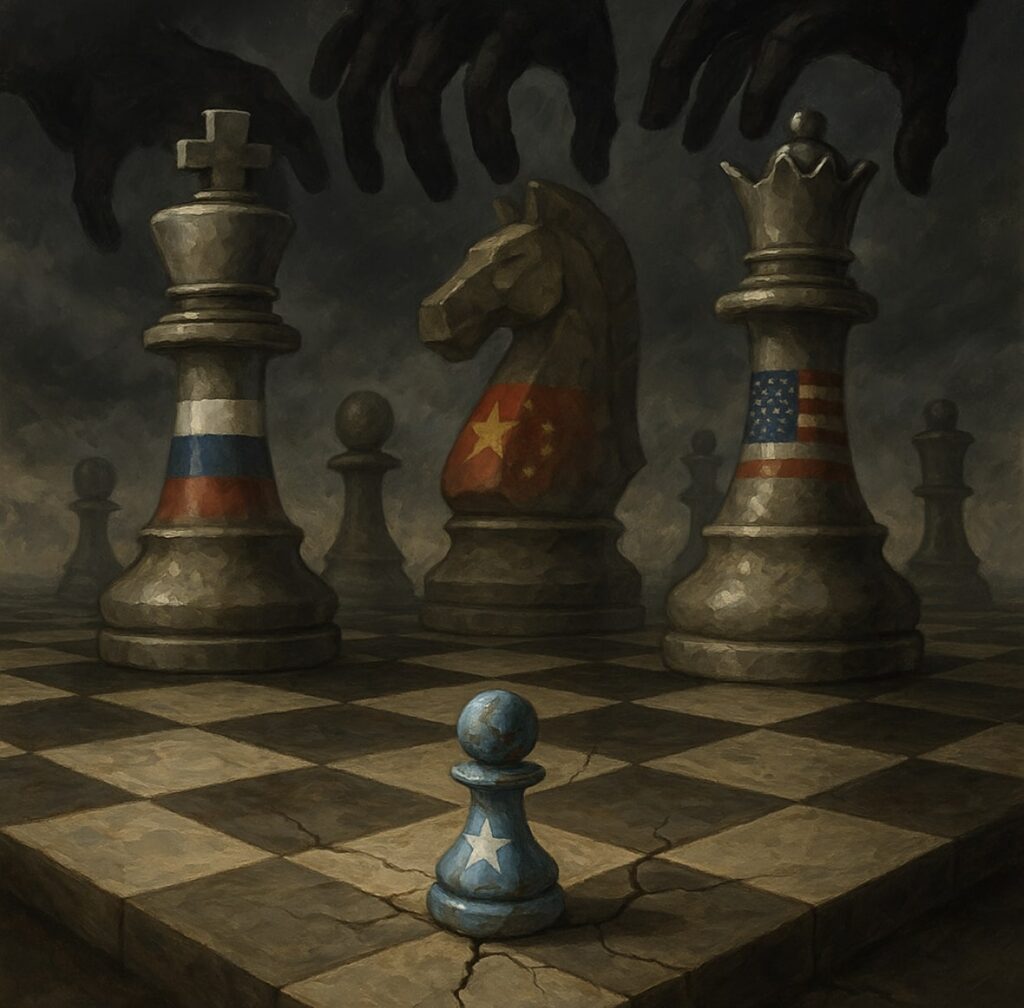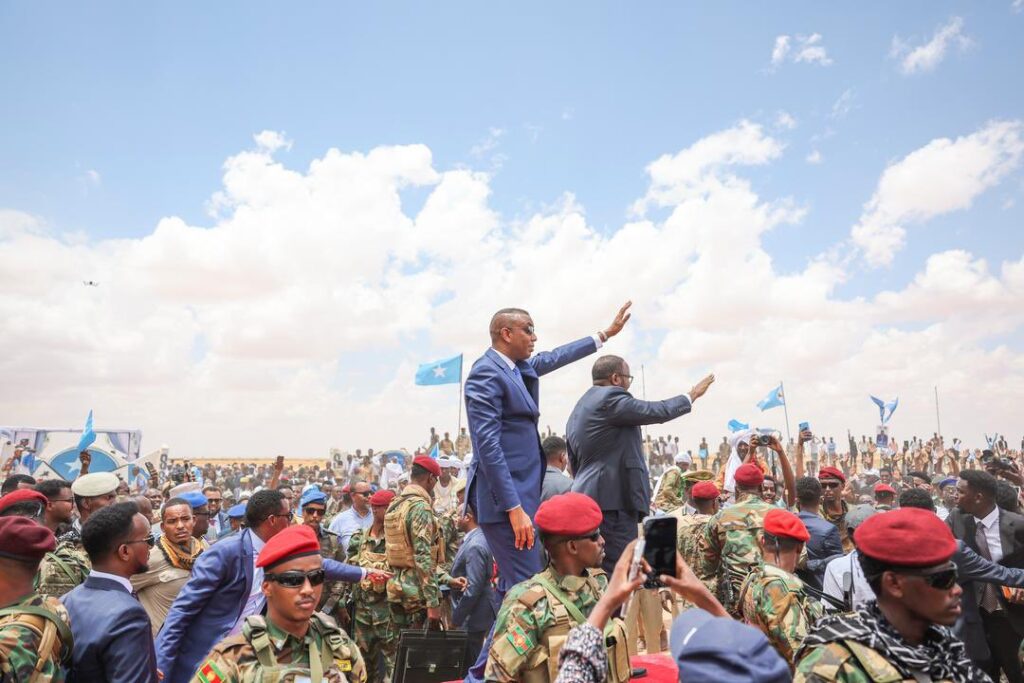Ahmed Mohamed Islam, commonly known as Ahmed Madobe, is a Somali politician and former militant who has served as the President of Jubaland State for over a decade. Born in the Somali eastern region currently controlled by Ethiopia, Madobe’s journey is one of adaptability, political opportunism, and a relentless pursuit of power.
In his youth, Madobe moved to Mogadishu, where he completed high school and studied Islamic law at university before the collapse of Somalia’s central government in 1991. His political and militant career began with his association with the Islamic Courts Union (ICU) in the early 2000s. During the rise of the ICU in 2006, Madobe fought for control of Mogadishu against a coalition of warlords. Later that year, he played a key role in the takeover of Kismayo and became governor of the Lower Jubba, Middle Jubba, and Gedo regions, which now form Jubaland.
However, the Ethiopian military invasion in December 2006 forced the ICU to retreat, and Madobe narrowly survived an American airstrike during clashes near Kismayo. Wounded and captured near the Kenyan border, he was imprisoned in Ethiopia for the remainder of their occupation. Following Ethiopia’s withdrawal in 2009, Madobe joined the newly-formed Somali government under President Sharif Sheikh Ahmed but resigned from parliament shortly after, citing distrust of foreign conspiracies.
Madobe later aligned himself with Hizbul Islam, serving as the local commander in Kismayo. By 2012, his forces, with Kenyan support, captured the strategic port city of Kismayo from Al-Shabaab. In May 2013, Madobe was elected interim president of Jubaland. Since then, he has maintained an iron grip over the region, using a combination of political maneuvering, alliances, and elimination of rivals to extend his tenure well beyond the legal limits.
A Master of Political Games
Ahmed Madobe’s political career is characterized by his ability to play opposing factions against each other. His dealings with the Somali Federal Government exemplify this strategy. During President Mohamed Abdullahi Farmajo’s term, tensions flared over Madobe’s unilateral attempt to hold elections in Jubaland, which the federal government deemed illegal. While the opposition at the time supported Madobe against Farmajo, they underestimated the depth of the conflict, failing to recognize that Madobe’s actions threatened the broader goal of national unity.
Today, President Hassan Sheikh Mohamud faces similar challenges with Madobe. The federal government has refused to recognize his continued rule over Jubaland, citing constitutional term limits. Despite this, Madobe has shifted allegiances once more, this time aligning with Ethiopia, whose ambitions in the region pose a direct threat to Somalia’s territorial integrity. His adaptability and willingness to exploit external support reveal a politician focused solely on retaining power, irrespective of national interests.
Dividing to Rule
Madobe’s political survival hinges on his ability to divide and rule. He manipulates tribal divisions, political rivalries, and international interests to maintain his authority. Despite his clever maneuvering, his leadership has failed to address the pressing issues in Jubaland. Under his rule, the region has seen limited development, persistent insecurity, and political stagnation.
Madobe’s former allies, including Prime Minister Hamza Barre, now find themselves grappling with the same tactics that once worked to their advantage. This cyclical pattern underscores the broader failure of Somalia’s political elite to prioritize national interests over personal power. While some leaders, like former President Farmajo and his national security advisor Fahad Yassin, took a firm stance against Madobe, many others remain complicit, blinded by short-term gains.
A Cautionary Tale
Ahmed Madobe’s story is a cautionary tale about the dangers of unchecked political opportunism. His alliances—shifting from Kenya to Ethiopia—demonstrate his willingness to partner with external forces, even those that threaten Somalia’s sovereignty. His methods of governance, rooted in division and manipulation, have deepened mistrust among Somali leaders and exacerbated the country’s challenges.
As Somalia navigates its complex political landscape, leaders must learn from the past. The failure to address figures like Madobe not only undermines regional stability but also jeopardizes Somalia’s long-term prospects. Unity, accountability, and a focus on the nation’s future are essential to overcoming the challenges posed by divisive politicians.
In the end, the question remains: will Ahmed Madobe’s tactics secure his place in history as a resilient leader, or will they mark him as a symbol of Somalia’s political dysfunction? Only time will tell.
by, Ahmed Jama





